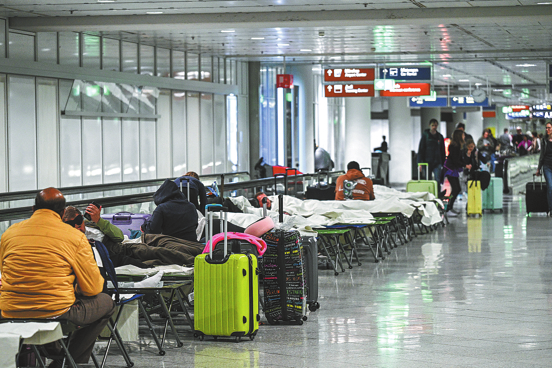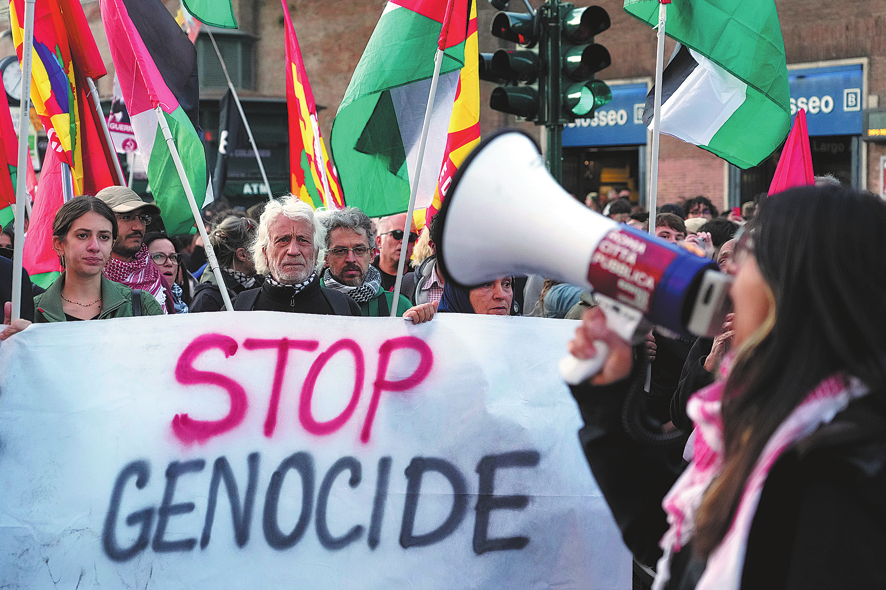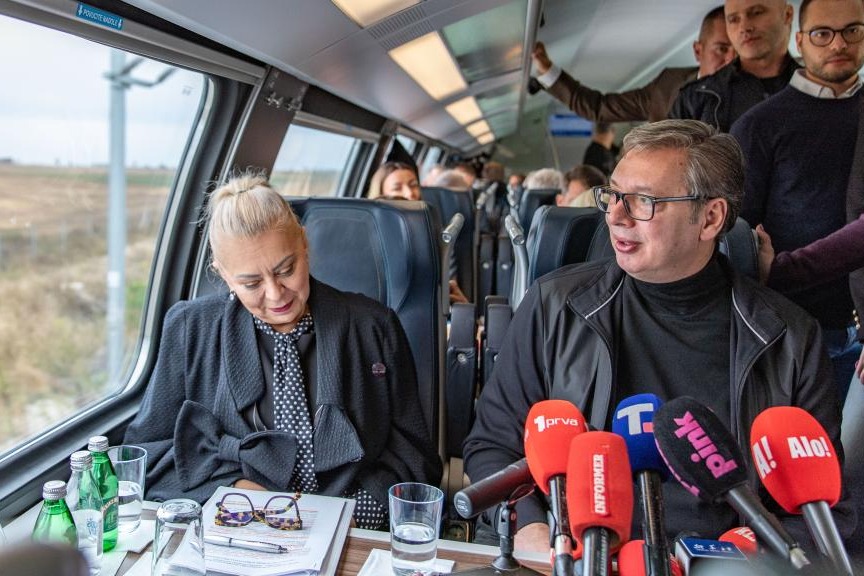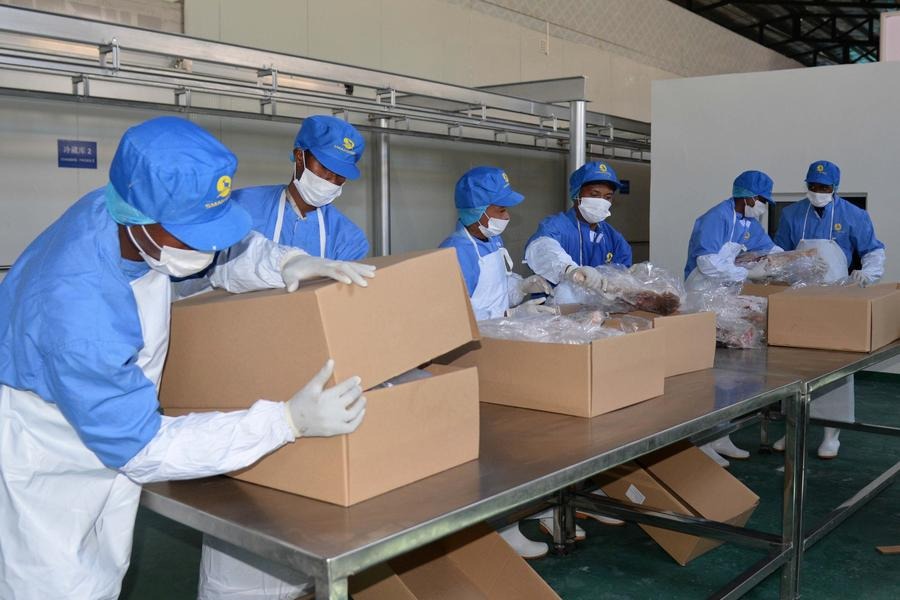Russia-US breakthrough seen as unlikely

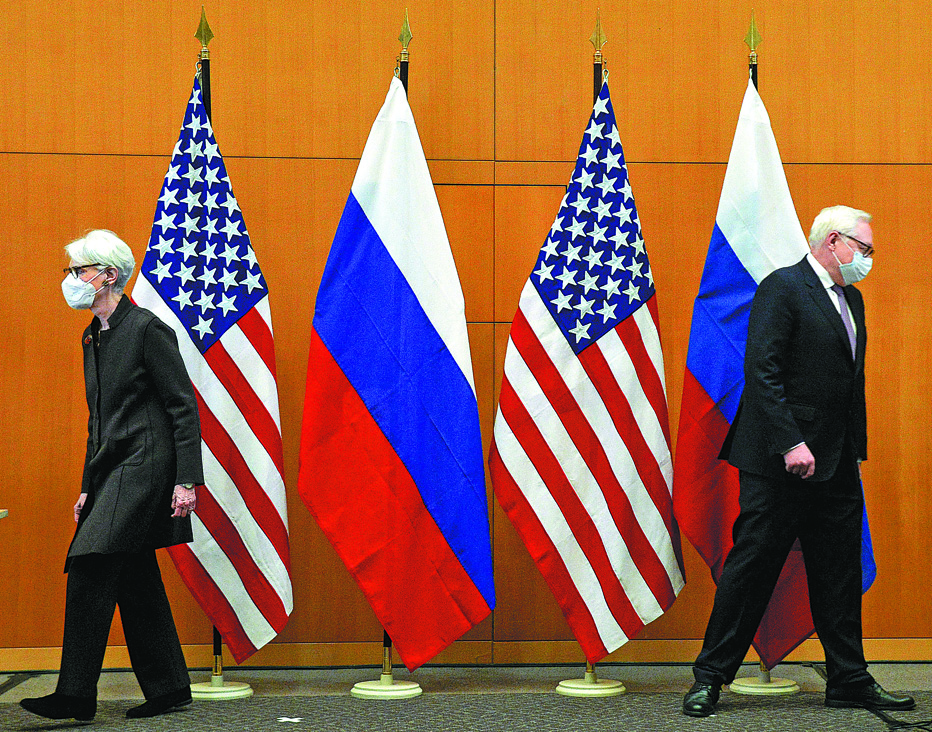
Crucial talks launch a week of diplomatic events aimed at easing tension over Ukraine
US and Russian officials held crucial talks on Monday amid soaring tensions over Ukraine and security demands from Moscow, but experts said there was little hope of a diplomatic breakthrough.
The high-stakes negotiations came amid fears of a Russian invasion of its pro-Western neighbor Ukraine, and with Moscow demanding wide-ranging concessions from Washington and its NATO allies.
The talks on Monday in Geneva launched a week of diplomacy between Russia and the West after Moscow amassed tens of thousands of troops at the Ukrainian border, drawing the United States into a Cold War-style standoff.
Russian state news agency RIA Novosti quoted Deputy Foreign Minister Sergey Ryabkov on Monday as saying he feared Washington was not taking seriously Moscow's demand of an end to NATO's eastward expansion.
Pointing to a 2008 promise by NATO to consider membership for Ukraine and others, Ryabkov said, "Are they ready to give legal guarantees that this country, as well as other countries… will not join NATO?"
"I have a rather pessimistic forecast in this regard."
US Deputy Secretary of State Wendy Sherman said on Twitter that the talks were underway and the US "will listen to Russia's concerns and share our own, but we have been clear we will not discuss European security without our Allies and partners".
A meeting of the NATO-Russia Council is to be held in Brussels on Wednesday, and the permanent council of the Organization for Security and Cooperation in Europe is set to meet in Vienna on Thursday, with the Ukraine issue expected to dominate.
Konstantin Kosachev, deputy speaker of the Federation Council of the Federal Assembly of the Russian Federation, said that the NATORussia Council meeting's effectiveness hinges on whether all the alliance members and Moscow speak on equal terms.
However, Russian newspaper Izvestia said the West is not ready to accept Moscow's conditions in full, so there is no need to expect a breakthrough from the meeting. Furthermore, Russia's principal round of security guarantee negotiations will be held directly with the US, it said.
Timofey Bordachev, program director of the Valdai International Discussion Club, agreed. He said that no breakthroughs or long-term decisions should be expected from the Russia-NATO Council format, since the main decisions will be made during Moscow's negotiations with Washington.
Andrey Kortunov, director general of the Russian International Affairs Council, said of the NATO-Russia Council meeting: "Most likely, the Western side will try to shift the discourse toward tactical and situational decisions that will help decrease tensions. That is, they will attempt to discuss confidence-building measures and de-escalation along the contact line. At the same time, they will demand that Russian forces withdraw from the Ukrainian border. It is difficult to say if this position of 'small matters' is sufficient for Moscow.
"Meanwhile, we are sticking to our guns that our proposal to halt NATO's eastward expansion should not be ignored," Kortunov said. "As a result, either Moscow will demonstrate flexibility and agree to start with a discussion of easy issues, or it will declare that it is unwilling to negotiate on such terms."
The meeting on Monday, which lasted more than seven hours, was the latest high-level Russian-US contact aimed at finding a diplomatic path for easing tension at the border of Russia and Ukraine since Russian President Vladimir Putin and US President Joe Biden held virtual summits on Dec 7 and 30.
Following the second summit, the Kremlin said it viewed the talks as constructive, while the White House warned that the US and its allies would respond strongly if Russia "invades Ukraine".
Maxim Suchkov of the Russian International Affairs Council said Moscow has no interest in raising tensions, but seeks to make its red lines clear, adding that the Kremlin is concerned that Ukraine may try to push for NATO accession as the conflict exacerbates.
Yuri Rogulev, director of the Franklin Roosevelt Foundation for United States Studies at Moscow State University, said Washington sought to escalate tensions via the media through constant "leaks "about Russia's alleged preparations for an invasion in order to strengthen its own position and to let Moscow see what it should expect if the situation deteriorates.
Russia, in turn, did not escalate the situation but only showed its ability to respond to US allegations, Rogulev said.

















